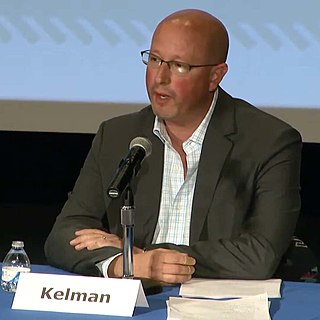Related Research Articles

Brown University is a private Ivy League research university in Providence, Rhode Island. It is the seventh-oldest institution of higher education in the United States, founded in 1764 as the College in the English Colony of Rhode Island and Providence Plantations. One of nine colonial colleges chartered before the American Revolution, it was the first U.S. college to codify that admission and instruction of students was to be equal regardless of the religious affiliation of students.

The Battle of Palmito Ranch, also known as the Battle of Palmito Hill, is considered by some criteria the final battle of the American Civil War. It was fought May 12 and 13, 1865, on the banks of the Rio Grande east of Brownsville, Texas, and a few miles from the seaport of Los Brazos de Santiago, at the southern tip of Texas. The battle took place more than a month after the surrender of the Army of Northern Virginia under Robert E. Lee to Union forces at Appomattox Court House, which had since been communicated to both commanders at Palmito. In the intervening weeks the Confederacy had collapsed entirely, so it could also be classified as a postwar action.

Comer Vann Woodward was an American historian who focused primarily on the American South and race relations. He was long a supporter of the approach of Charles A. Beard, stressing the influence of unseen economic motivations in politics.

Bury My Heart at Wounded Knee: An Indian History of the American West is a 1970 non-fiction book by American writer Dee Brown that covers the history of Native Americans in the American West in the late nineteenth century. The book expresses details of the history of American expansionism from a point of view that is critical of its effects on the Native Americans. Brown describes Native Americans' displacement through forced relocations and years of warfare waged by the United States federal government. The government's dealings are portrayed as a continuing effort to destroy the culture, religion, and way of life of Native American peoples. Helen Hunt Jackson's 1881 book A Century of Dishonor is often considered a nineteenth-century precursor to Dee Brown's book.

Sergei Nikitich Khrushchev was a Soviet-born American engineer and the second son of the Cold War-era Soviet Premier Nikita Khrushchev with his wife Nina Petrovna Khrushcheva. He moved to the United States in 1991 and became a naturalized American citizen.

John Watson Foster was an American diplomat and military officer, as well as a lawyer and journalist. His highest public office was U.S. secretary of state under Benjamin Harrison, although he also proved influential as a lawyer in technically private practice in the international relations sphere.

The Watson Institute for International and Public Affairs, soon to be renamed Watson School for International and Public Affairs, is an interdisciplinary research center at Brown University in Providence, Rhode Island. Its mission is to promote a just and peaceful world through research, teaching, and public engagement. The institute's research focuses on three main areas: development, security, and governance. Its faculty include anthropologists, economists, political scientists, sociologists, and historians, as well as journalists and other practitioners.

David Israel Kertzer is an American anthropologist, historian, and academic, specializing in the political, demographic, and religious history of Italy. He is the Paul Dupee, Jr. University Professor of Social Science, Professor of Anthropology, and Professor of Italian Studies at Brown University. His book The Pope and Mussolini: The Secret History of Pius XI and the Rise of Fascism in Europe (2014) won the 2015 Pulitzer Prize for Biography or Autobiography. From July 1, 2006, to June 30, 2011, Kertzer served as Provost at Brown.
Robert P. Watson is an American political scientist and a historian of US politics, and the author of many books on US political and military history. He is Distinguished Professor of American History and Avron Fogelman Research Professor at Lynn University.

William Williams Keen Jr. was an American physician and the first brain surgeon in the United States. During his lifetime, Keen worked with six American presidents.

Catharine Drew Gilpin Faust is an American historian who served as the 28th president of Harvard University, the first woman in that role. She was Harvard's first president since 1672 without an undergraduate or graduate degree from Harvard and the first to have been raised in the South. Faust is also the founding dean of the Radcliffe Institute for Advanced Study. She has been ranked among the world's most powerful women by Forbes, including as the 33rd most powerful in 2014.
Joanna Bourke is a British historian and academic. She is professor of history at Birkbeck, University of London.

The state of medical knowledge at the time of the Civil War was extremely primitive. Doctors did not understand infection, and did little to prevent it. It was a time before antiseptics, and a time when there was no attempt to maintain sterility during surgery. No antibiotics were available, and minor wounds could easily become infected, and hence fatal. While the typical soldier was at risk of being hit by rifle or artillery fire, he faced an even greater risk of dying from disease.

The history of medicine in the United States encompasses a variety of approaches to health care in the United States spanning from colonial days to the present. These interpretations of medicine vary from early folk remedies that fell under various different medical systems to the increasingly standardized and professional managed care of modern biomedicine.

Ari Kelman is Chancellor’s Leadership Professor of History at University of California, Davis. Until 2016, he was the McCabe Greer Professor of History at Penn State University. His fields of specialization are the U.S. Civil War, Western, Native American, and environmental history. Kelman's book, A Misplaced Massacre, won the 2014 Bancroft Prize, Avery O. Craven Award, Tom Watson Brown Book Award, and Robert M. Utley Prize.

Heather Cox Richardson is an American historian. She is a professor of history at Boston College, where she teaches courses on the American Civil War, the Reconstruction Era, the American West, and the Plains Indians. She previously taught history at MIT and the University of Massachusetts Amherst.
Sir Thomas Martin Devine is a Scottish academic and author who specializes in the history of Scotland. He was knighted and made an Officer of the Order of the British Empire for his contributions to Scottish historiography, and is known for his overviews of modern Scottish history. He is an advocate of the total history approach to the history of Scotland. He is professor emeritus at the University of Edinburgh, and was formerly a professor at the University of Strathclyde and the University of Aberdeen.

Gary William Gallagher is an American historian specializing in the history of the American Civil War. Gallagher is currently the John L. Nau III Professor in the History of the American Civil War at the University of Virginia. He produced a lecture series on the American Civil War for The Great Courses lecture series.

Amy Elizabeth Murrell Taylor is an American historian. She is the T. Marshall Hahn Jr. Professor of History at the University of Kentucky.
Deirdre Cooper Owens is an American historian and reproductive rights activist known for her 2017 book Medical Bondage: Race, Gender, and the Origins of American Gynecology. She is an associate professor at the University of Connecticut.
References
- ↑ "Learning from the Wounded | Shauna Devine".
- ↑ "Back Matter". Journal of the Civil War Era. 5 (3). 2015. JSTOR 26070345.
- ↑ "Shauna Devine".
- ↑ "Dr. Shauna Devine".